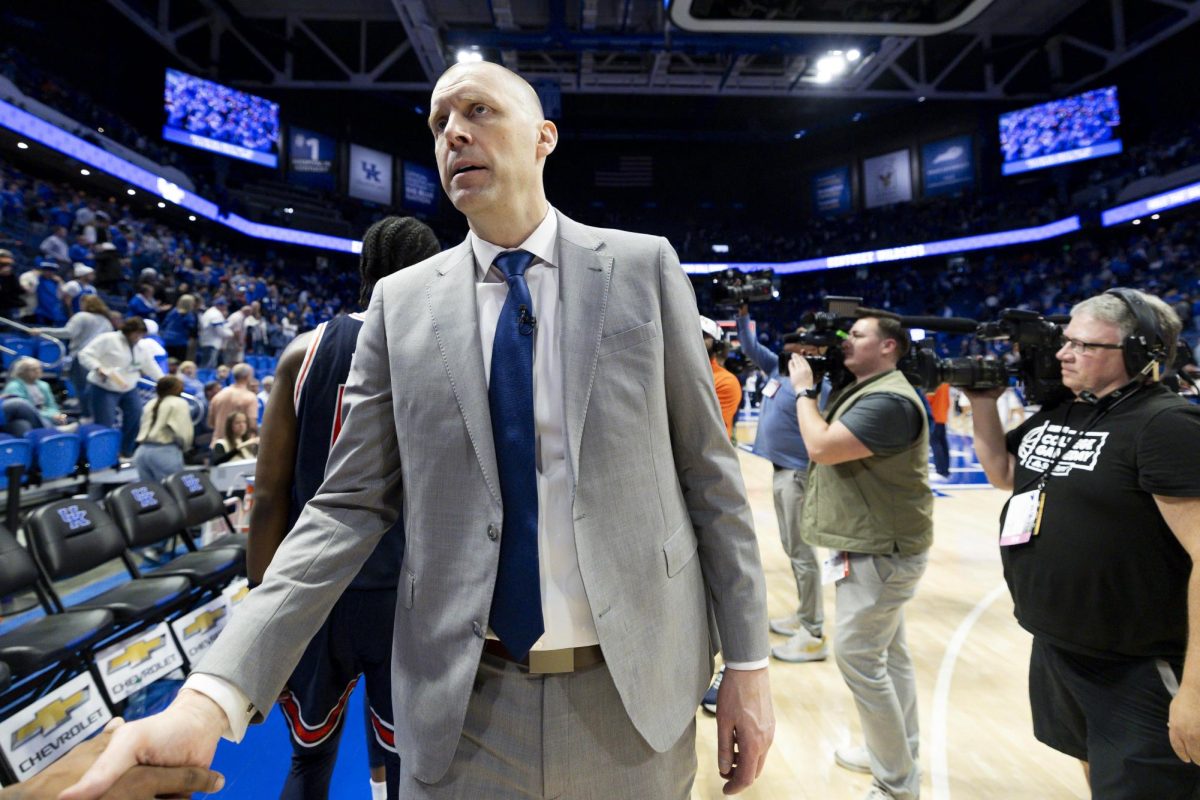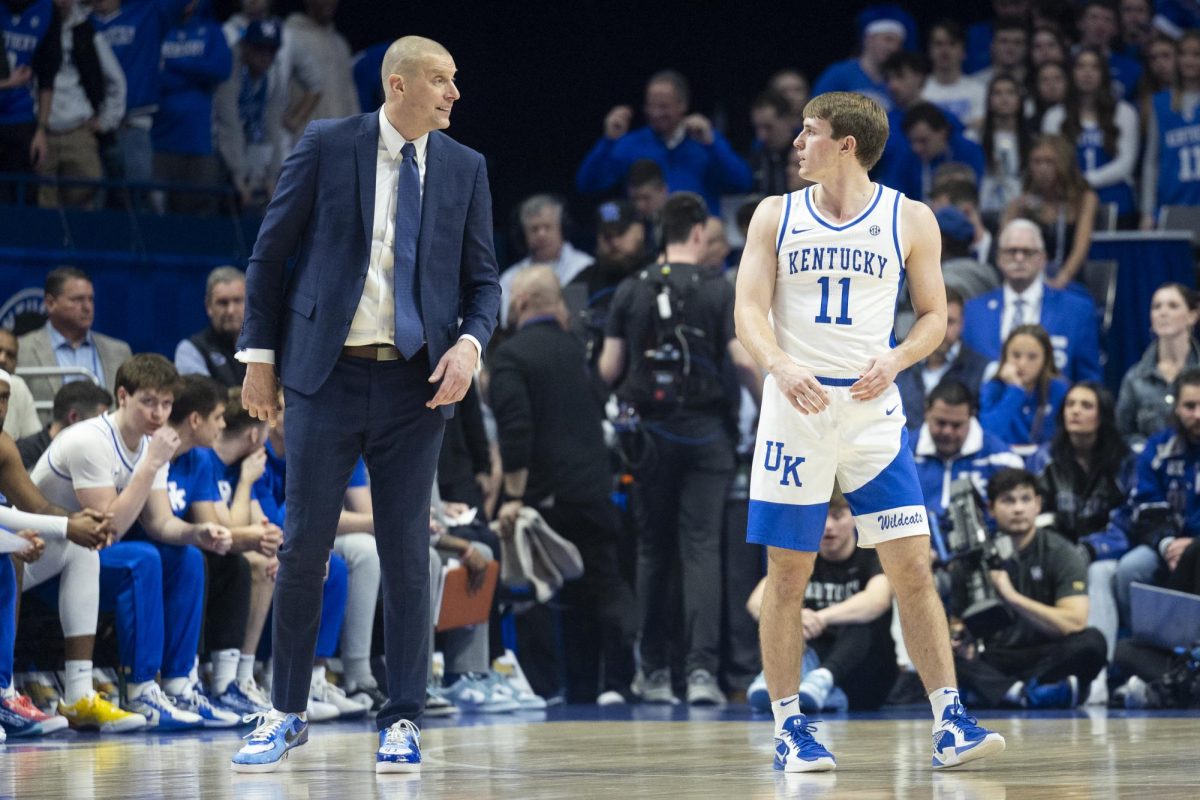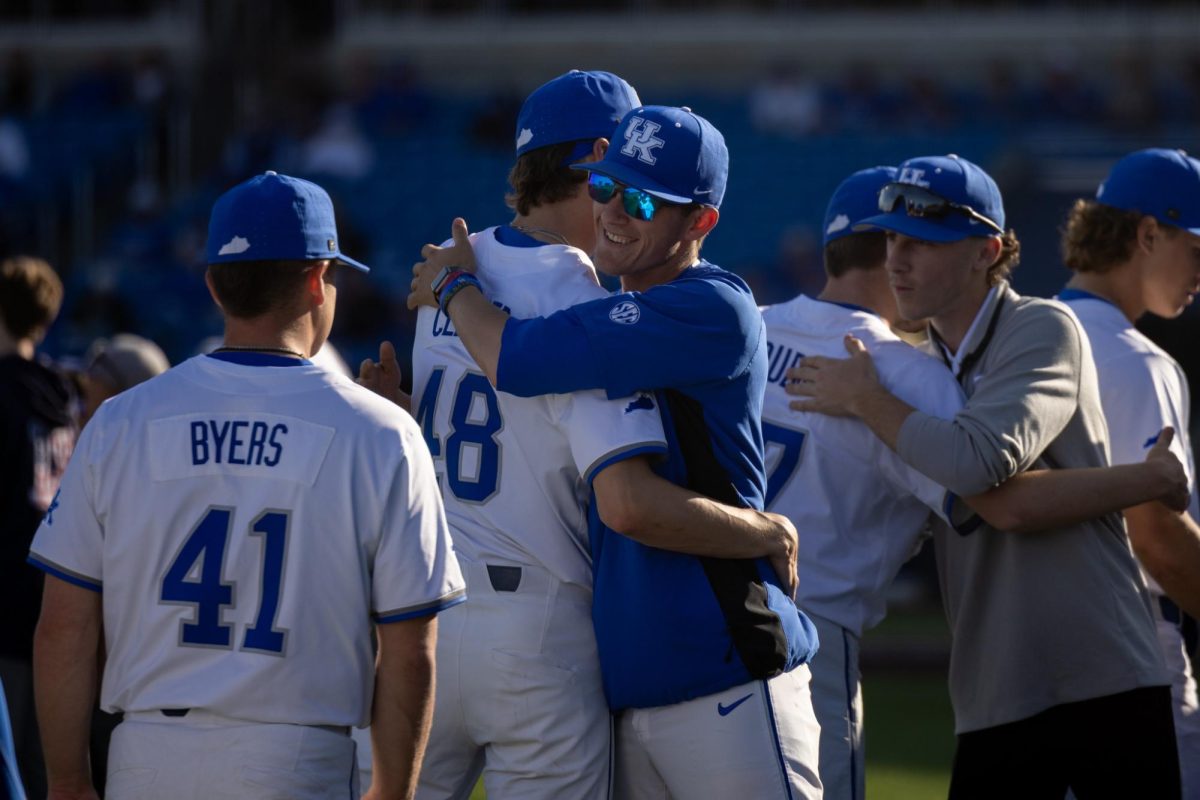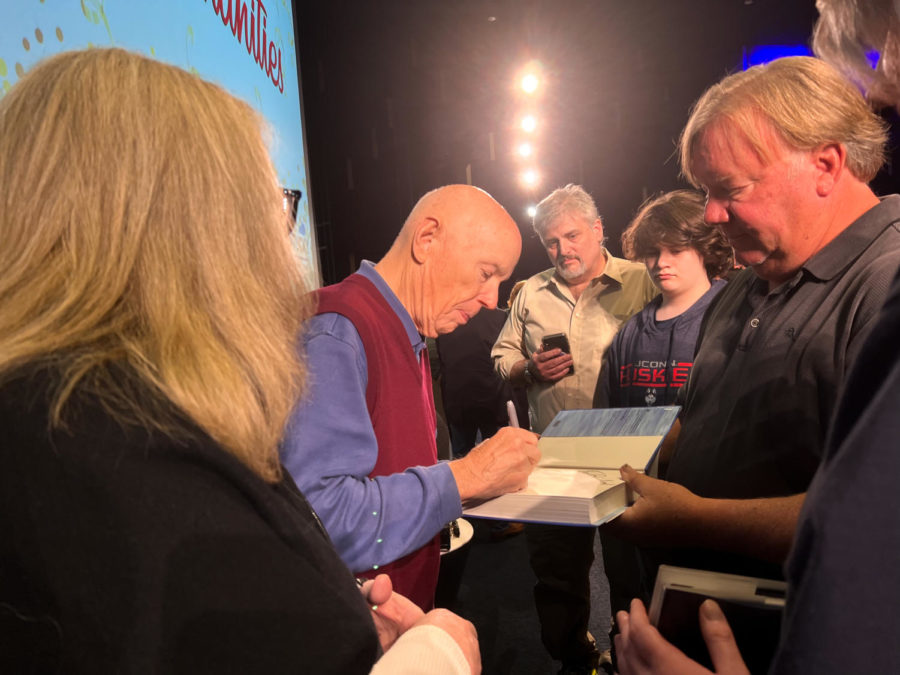‘I’m leaving the planet.’ Story Musgrave talks space, programming and quantitative life
Astronaut Story Musgrave signs a copy of his book on Thursday, Oct. 13, 2022, at the University of Kentucky’s Student cenetr Worsham Cinema in Lexington, Kentucky. Photo by Alexis Baker | Kentucky Kernel
October 22, 2022
Co-founder and Chairman of technology company Space Tango Kris Kimel led a conversation with renowned American astronaut and doctor Story Musgrave on Oct. 13.
The discussion, held in the Gatton Student Center, was hosted by Kentucky Humanities, the University of Kentucky Cooperative for the Humanities and Social Sciences and Team Kentucky: Tourism, Arts and Heritage Cabinet.
Musgrave was born in Stockbridge, Massachusetts, where his childhood was predominantly spent on his family’s dairy farm, he told Kentucky Kernel staff ahead of the event.
Throughout his adolescence, he gained mechanical skills and eventually enlisted in the United States Marine Corps at 17 years old. He focused on airplane engine mechanics and became the youngest crew chief in the Marine Corps’ history.
After his time in the Marines, Musgrave obtained a bachelor of science in mathematics and science from Syracuse University. He said he took away something more than a degree from the university.
“Wherever you are in life, good or bad, you must control all the factors that are pushing on you, the good factors and the bad factors, the ones that will help you get there and the ones that will hurt you,” Musgrave said. “If you can quantitate those factors, then the math can handle it. ”
Musgrave continued his education at UCLA in Operations of Research, known now as Systems Engineering. He got an IBM 709 computer and began working on programming, but he was deterred when he became interested in how the human brain works.
He took his prerequisites for medical school at Marietta College in Ohio with a major in chemistry. He then continued to Columbia University Medical School and completed his clinical training at the University of Kentucky.
While in his training at UK, Musgrave became interested in NASA’s space program. It served as an intersection for his wide skill set.
“My God, it’ll use everything I have ever done in life,” Musgrave said. “All my mechanical skills, my education, my computers, whatever you want. Everything I have ever done, I can put to work in this job. I will do that.”
At NASA, Musgrave’s main role was to promote growth for the program by straying from the norm.
“I was not always popular. Any organization you belong to, they are not looking for people on the edge; they are looking for people who comply. I worked very well on the edge. I got an awful lot done,” Musgrave said.
This initiative led Musgrave to be NASA’s elite spacewalker for 25 years, overseeing the completion of the first shuttle spacewalk and the repair of the Hubble Telescope.
Once again, his plans were altered. When Musgrave left Lexington, Kentucky, to go to Houston and join NASA, the chairman of surgery for the University of Kentucky got a new job as the chief of surgery in Colorado the same week he left for NASA.
“He called me up on the phone and said, ‘Hey Story. If you can break away from all that NASA junk for three days a month, me and you will go do trauma surgery.’ I was a trauma surgeon for 30 years (at) Denver General Hospital,” Musgrave said.
While Musgrave obtained many accolades and created a renowned skillset, his said his true passion in life is rooted in his family.
“My main passion is being a father, being a daddy,” he said.
His 16-year-old daughter is in formal flying school, and they built their first airplane together.
Musgrave also walked Kimel through the prominent stepping stones throughout his life that got him where he is today. There was an emphasis on his time spent in space and the future of space.
A typical spacewalk for Musgrave lasted eight hours. Musgrave said that this was not a long time when he was doing his job.
“Time is critical; you have to get the job done,” Musgrave said. “Your suit is going to run out of gas, and you’ve got to go home.”
Kimel asked Musgrave about deep space and human life on Mars. Musgrave said that he is optimistic about Mars’s potential to be a habitat for the human race.
“It’s a friendly place … I can’t see any way it’s going to harm you,” Musgrave said. “What factor is there that we cannot accommodate? It’s okay. It’s really okay.”
Kimel and Musgrave then discussed the existence of advanced civilization within the universe. Because of billions of years of evolution, Musgrave said he is a believer in life elsewhere, but he is doubtful that they would come to Earth.
“The question is, would it come here? That’s a lesson we all have to have. Are human beings successful with each other? Do they love each other? Do they care for each other?” Musgrave said.
Kimel closed the discussion by asking Musgrave about his reflections on being in space. Musgrave said that spaceflight means three things to him: the enjoyment from completing his job, working on mission control and the view from his window. Musgrave also enjoyed having fun with anti-gravity.
Musgrave had a variety of experiences in his life that very few people will be able to relate to, but two years ago, he said that his DNA became shockingly apparent.
“I’m leaving the planet … I’m not being cynical, it’s life … I’m designing life for the last chapter,” Musgrave said.

























































































































































